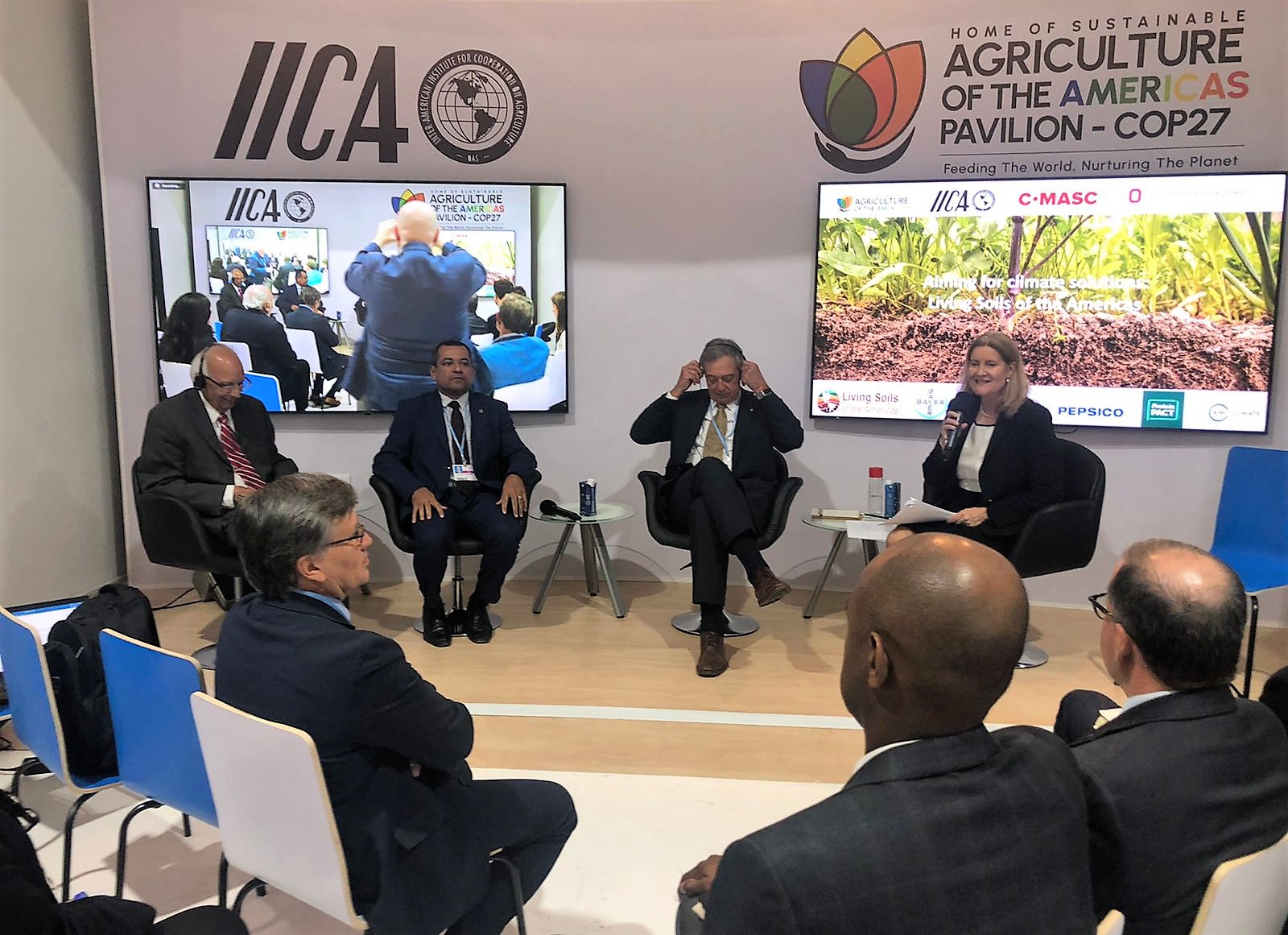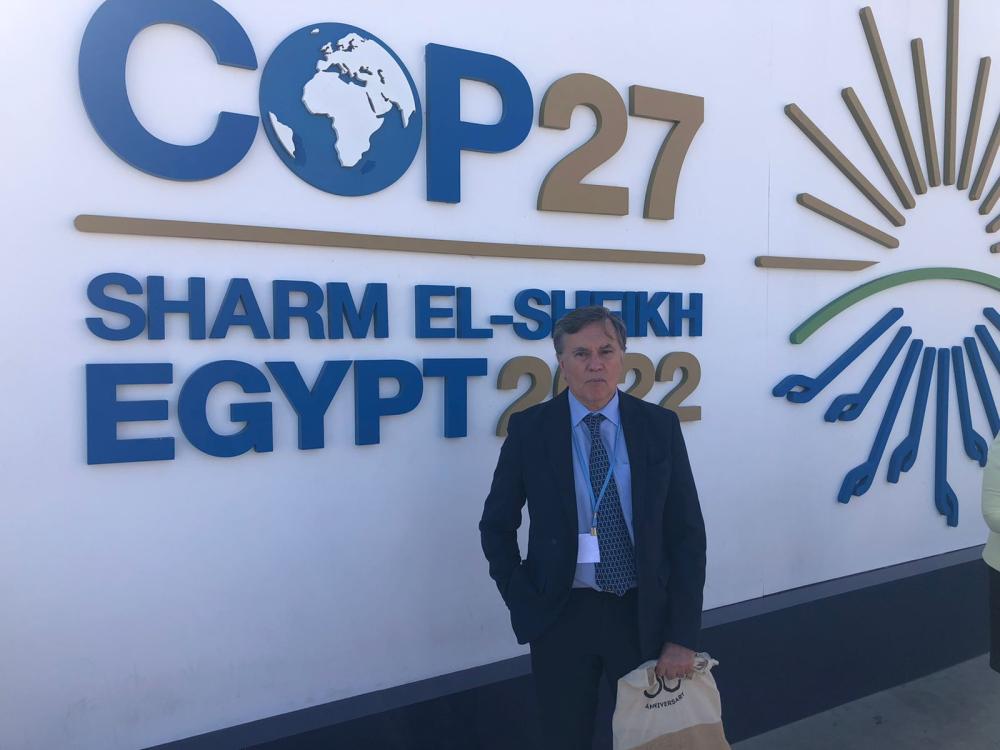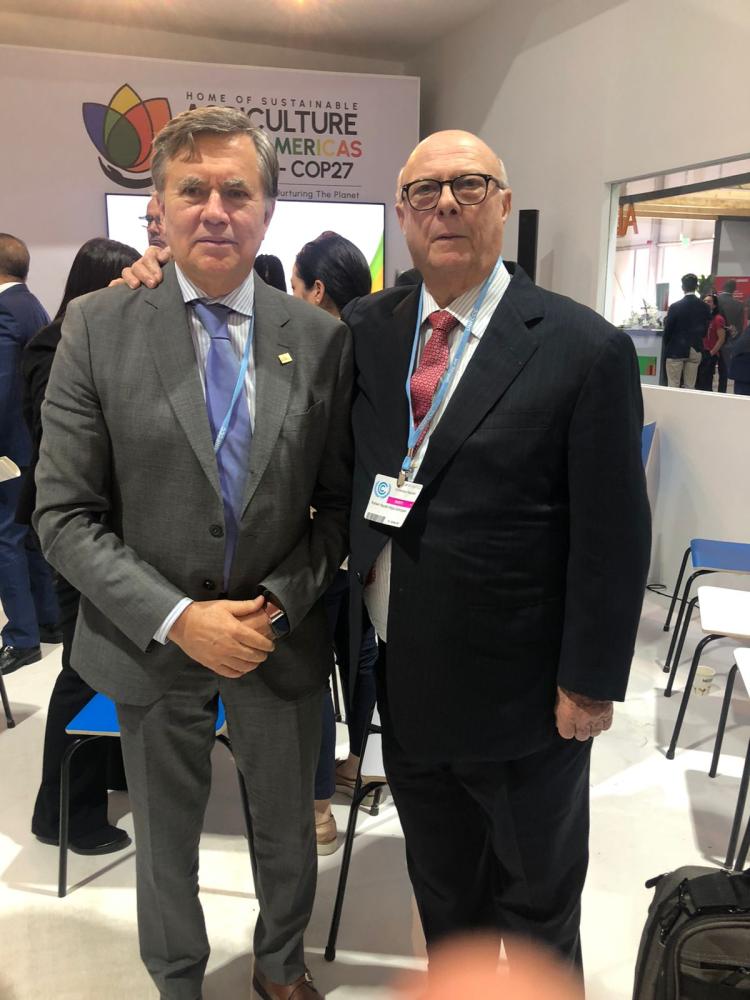Some of the key players in this initiative—that has successfully combined private-public sector efforts to combat soil degradation—recounted the program’s achievements during an event held at the Home of Sustainable Agriculture of the Americas pavilion in the Sharm El-Sheikh Convention Center. IICA established the pavilion with the support of its member countries and international partners.

Sharm El-Sheikh, Egypt, 17 November 2022 (IICA) – Living Soils of the Americas, the program that the Inter-American Institute for Cooperation on Agriculture (IICA) and award-winning scientist Rattan Lal have been developing for the last two years, was presented at COP27 – the world’s most important forum discussing the fight against climate change and the protection of natural resources.
Some of the key players in this initiative—that has successfully combined private-public sector efforts to combat soil degradation—recounted the program’s achievements during an event held at the Home of Sustainable Agriculture of the Americas pavilion in the Sharm El-Sheikh Convention Center. IICA established the pavilion with the support of its member countries and international partners.
Rattan Lal is considered the world’s leading authority on soil sciences and is the Director of the Carbon Management and Sequestration Center (CMASC) at The Ohio State University. He pointed out that 40% of the world’s land is devoted to agriculture and that agrifood systems are the source of 33% of total greenhouse gas emissions; and yet, millions of people in the world are suffering from hunger and malnutrition.
“Thus, the aim of the program that we spearheaded with IICA is to assist in slowing down processes of land degradation due to soil management. That is the only way to guarantee the health of ecosystems and societies”, he maintained.
Lal, who is the 2020 World Food Prize laureate, as well as an IICA Goodwill Ambassador and the Institute’s Special Envoy to COP27, indicated that the soil can be used as a carbon sink. Therefore, agriculture can provide a solution to climate change and the environmental crisis.
“I feel optimistic whenever I hear the commitment of small farmers and public policy makers”, said Lal. With IICA’s leadership, we will resolve the dilemma of trying to protect natural resources and guarantee food security at the same time”.

Manuel Otero, Director General of IICA, provided details on the program, explaining that the main idea is to sensitize countries and rural producers about the importance of protecting soil health, as something that is indispensable to future prosperity.
Building on public-private partnerships
The Minister of Livestock, Agriculture and Fisheries of Uruguay, Fernando Mattos; and the Assistant Secretary for Innovation and Technology of the Ministry of Agriculture, Livestock and Food Supply of Brazil, Cleber Soares, were among the speakers at the event, which also included a segment dedicated to the companies that have joined the initiative.
Also participating were Mauricio Rodrigues, President of Bayer Crop Science Latin America, and Daniel Vennard, Head of Sustainability at Syngenta. IICA’s Representative in the United States, Margaret Zeigler, served as moderator. The initiative is supported by Bayer, Syngenta and PepsiCo.
“There can be no production without living soils. That is why we must continuously care for and understand soils. Uruguay has extensive experience in this area”, said Mattos.
The Uruguayan minister explained that all agricultural producers in that South American country are required to submit a soil management plan to the Ministry, which is empowered to sanction inadequate management. To this end, it carries out continuous monitoring.
“Producers are keenly aware of the need to protect the soil, which is their primary resource”, he noted.

For his part, Cleber Soares, former Director of the Brazilian Agricultural Research Company (EMBRAPA), explained that, unlike in Argentina and Uruguay, where soils are naturally very fertile, virtually all soils in Brazil are quite poor. “For this reason”, he acknowledged, “40 or 50 years or so ago we invested a great deal in fertilization and in combating acidification. Otherwise, Brazil would not be where it is today with respect to agriculture”.
Soares explained that Brazil has truly revolutionized fertilization and currently utilizes biological nitrogen fixation to grow on 40 million hectares. “We are constantly engaged in research, and we utilize efficient decarbonizing technologies on 17 million hectares”, he revealed.
Daniel Vennard, in turn, referred to the industry’s contribution to caring for soil. “We can contribute innovation and knowledge to better understand soils. We are working on new varieties that require fewer nutrients, to reduce the use of fertilizers and help farmers optimize the use of inputs”, he said.
“Our industry is a key player in following through with this agenda and finding ways to accelerate it”, he added.
Mauricio Rodrigues, who has 20 years of experience in Latin America, recounted his company’s partnerships to strengthen projects related to potato farming in Argentina, coffee growing in Brazil and milk production in Chile, among others.
“We remain focused on combining innovation and sustainability, and we will continue to move forward in collaboration with public scientific institutions, such as EMBRAPA in Brazil, as well as with universities”, he concluded.
More information:
Institutional Communication Division.
comunicacion.institucional@iica.int











